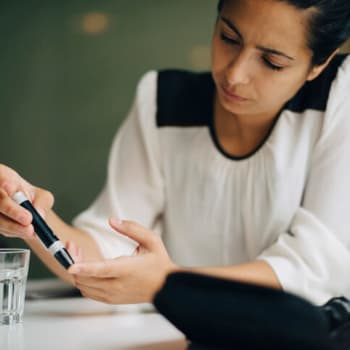Does UnitedHealthcare Cover Incontinence Supplies?
In this article...
- Urinary incontinence is a common condition that affects some older adults. Find out more about when UnitedHealthcare may help cover incontinence supplies.
Original Medicare (Parts A and B) doesn't cover many incontinence supplies. Some Medicare Advantage (Medicare Part C) plans offered through private insurance companies like UnitedHealthcare may cover a limited number of incontinence supplies each month. Some plans may offer an allowance for over-the-counter (OTC) items that beneficiaries might use to help pay for qualified incontinence supplies.
Specific coverage can vary by location, so it's important for plan members to consult with their local plan providers to determine if incontinence supplies are covered.
Coverage limits can also vary by plan.
Are There Medications for Incontinence?
There are several medications available to help relieve symptoms of incontinence. Anticholinergic medications are typically recommended for individuals with overactive bladders. Mirabegron is a medication that helps relax the bladder muscles and may help improve bladder emptying.
Alpha blocker medications that relax the bladder neck muscles of the prostate are sometimes prescribed to men with incontinence due to prostate problems, and topical estrogen creams are often recommended to females to help strengthen the urethra and vaginal tissues.
Are There Medical Procedures to Help Treat Incontinence?
Medical procedures to help treat incontinence include medical device inserts, interventional therapies and surgery. Here are some common incontinence procedures:
- Urethral insert: Urethral inserts are specifically designed for women. The inserts are similar in shape to tampons and inserted into the urethra to prevent urinary leakage during specific activities. For example, if sports activities, such as yoga or jogging, are known leakage triggers, a woman may use an insert for the duration of the triggering activity. Urethral inserts create a temporary leak barrier and must be removed prior to urination.
- Botox injections: Botox injections are sometimes recommended when other treatments are unsuccessful. The medication may help prevent urinary incontinence by reducing muscle contractions in the bladder.
- Sling procedures: During a sling procedure, strips of tissue or mesh material are used to create a 'sling' that is inserted beneath the urethra. The sling helps keep the urethra closed, which in turn may help to prevent urinary leakage.
- Catheter insertion: Catheter placement may be recommended for individuals who cannot completely empty their bladders when urinating. Catheters are generally self-inserted at home and drained several times a day.
What Causes Incontinence in Older Women and Men?
Incontinence can occur in individuals of all ages, but the condition tends to be more common in older adults, particularly women. Some women begin to experience symptoms of incontinence during or following pregnancy due to changes in the body that weaken the pelvic floor and/or injuries to the nerves that control the bladder. The condition may also develop in women going through menopause.
During menopause, dropping estrogen levels can lead to weak pelvic floor muscles, resulting in episodes of incontinence. Some women experience chronic incontinence after pregnancy and menopause that may continue as they age.
Conditions, such as Parkinson's disease, Alzheimer's disease, stroke and diabetes, can lead to episodes of incontinence in both older women and older men. This form of incontinence is referred to as urge incontinence, and it typically occurs as a combined result of the underlying condition causing an immediate need to urinate and an inability to hold the urine in long enough to make it to the restroom.
Older males with various prostate conditions often experience symptoms of incontinence. Enlarged prostate glands, inflamed prostate glands and injury to the surrounding nerves and muscles of the prostate can cause urine to leak from the bladder.
Where Is the Closest UnitedHealthcare Medicare Store?
There are 4 UnitedHealthcare Medicare stores in the U.S.
- Arizona
- Nevada
- New York
- Texas
Helpadvisor.com is owned and operated by Tranzact, the parent company of TZ Insurance Solutions LLC, which is the owner/operator of Medicareadvantage.com and other websites mentioned on HelpAdvisor and which has a financial relationship with some of the carriers listed on HelpAdvisor.




